ART HISTORY AT WORK LECTURE SERIES
Restitution of Cultural Property: International Conventions and Their Practices
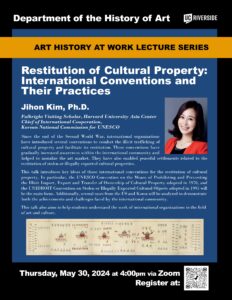 Jihon Kim, Ph.D.
Jihon Kim, Ph.D.
Fulbright Visiting Scholar, Harvard University Asia Center
Chief of International Cooperation,
Korean National Commission for UNESCO
Since the end of the Second World War, international organizations have introduced several conventions to combat the illicit trafficking of cultural property and facilitate its restitution. These conventions have gradually increased awareness within the international community and helped to moralize the art market. They have also enabled peaceful settlements related to the
restitution of stolen or illegally exported cultural properties.
This talk introduces key ideas of those international conventions for the restitution of cultural property. In particular, the UNESCO Convention on the Means of Prohibiting and Preventing the Illicit Import, Export and Transfer of Ownership of Cultural Property adopted in 1970, and the UNIDROIT Convention on Stolen or Illegally Exported Cultural Objects adopted in 1995 will be the main focus. Additionally, several cases from the US and Korea will be analyzed to demonstrate both the achievements and challenges faced by the international community.
This talk also aims to help students understand the work of international organizations in the field of art and culture.
Thursday, May 30, 2024 at 4:00pm via Zoom.
Register here


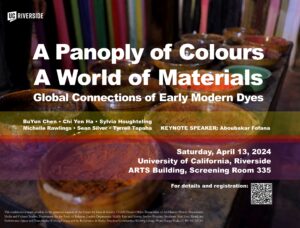
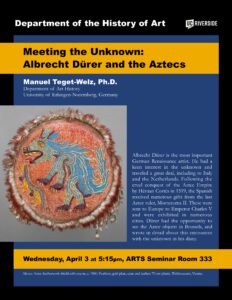 Manuel Teget-Welz, Ph.D.
Manuel Teget-Welz, Ph.D.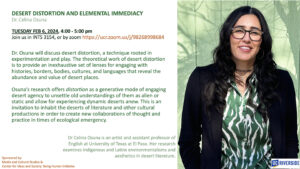 Dr. Osuna will discuss desert distortion, a technique rooted in experimentation and play. The theoretical work of desert distortion is to provide an inexhaustive set of lenses for engaging with histories, boundaries, bodies, cultures, and languages that reveal the abundance and value of desert places.
Dr. Osuna will discuss desert distortion, a technique rooted in experimentation and play. The theoretical work of desert distortion is to provide an inexhaustive set of lenses for engaging with histories, boundaries, bodies, cultures, and languages that reveal the abundance and value of desert places.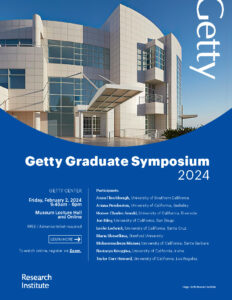 View the program
View the program